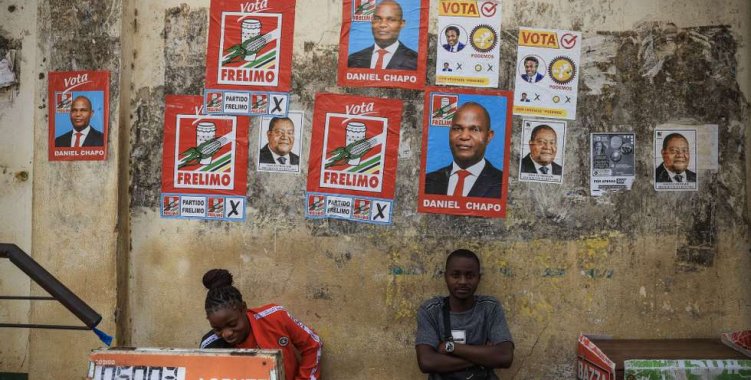Orlanda da Silva, daughter of an Angolan father and a Mozambican mother, moved permanently to Angola 11 years ago, where she watches the events unfold in her country "with concern", as do many Mozambicans in the diaspora who left their families in Mozambique.
There are currently less than a thousand Mozambicans living in Angola, a community that was once larger but which has been decreasing since 2014 due to the effects of the economic crisis that forced many citizens to return to Mozambique.
Asked about what she expects after the inauguration of President-elect Daniel Chapo, scheduled for Wednesday, Orlanda da Silva believes that the competent bodies will find a mechanism to resolve the electoral crisis.
"We leave everything to those who are entitled to it and we, on this side, have the mission to wait, hopefully, for everything to end well", the representative of Mozambicans living in Angola told Lusa, highlighting that "the competent bodies will have greater relevance and power to define this situation".
In the October presidential elections, the Constitutional Council, the final instance of appeal in electoral disputes, proclaimed Daniel Chapo, a candidate supported by Frelimo (in power since Mozambique's independence in 1975), as the winner, with 65.17 percent of the votes.
Chapo's election as Filipe Nyusi's successor has been contested in the streets and the CC's announcement has increased the chaos that the country has been experiencing since October, with pro-Mondlane protesters – a candidate who, according to the Constitutional Council, obtained only 24 percent of the votes , but claims victory – in protests that have already resulted in hundreds of deaths, demanding the "reestablishment of electoral truth", with barricades, looting and clashes with the police.
Chapo takes office on Wednesday amid protests and heavy security measures.
For Orlanda da Silva, Mozambique will be able to "find dialogue to resolve this situation" since "the Mozambican people are not violent" and are looking for solutions.
"We will not look at the 15th as a day when we might have conflicts. We will look at the 15th as the day that was set for the inauguration of the new President and we will continue with the work of our country," said to Lusa the psychologist.
Without wanting to comment on a possible recount of votes or on political issues, the university professor also stated that in social and economic terms the post-electoral context has weakened the country.
"Mozambique ended up weakened, yes. We saw our economy, the events that were taking place weakened our economy in a certain way", highlighted Orlanda da Silva.
"But we believe that at some point and at some point everything will be resolved and Mozambique will be able to stabilize its economy again," added the representative of the Mozambican community.
Orlanda da Silva is hopeful that Mozambique will soon return to its normal rhythm: "We are all hopeful that better days may come, Mozambique is Mozambique and we are all Mozambicans", she stressed.
He admits that for those who live abroad "the situation is slightly complicated", worrying about their families in light of the violence that has erupted in recent months and when the demonstrations "are beginning to take a turn that will lead to vandalism".
Still, assures the Angolan-Mozambican with "a heart divided between the two countries", contacts with her family in Mozambique have been frequent and successful, which has been "creating some peace of mind".







